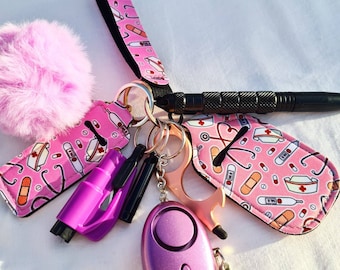
CIT officers can respond to mental healthcare crises in their community by being trained as Crisis Intervention Team (CIT). They also learn de-escalation techniques as well as mental health first aider. They complete a range of training, including role playing exercises. Read on to learn more about the CIT officer position.
Crisis Intervention Team (CIT), officers are trained in responding to mental health crises
CIT officers are police officers specially trained to respond in crisis situations. Their primary objective is to de-escalate the situation and not use force. They also refer individuals who need mental health care to mental facilities. Five goals are the focus of the training: To reduce injuries to officers, to promote decriminalization of mental illness sufferers, to reduce stigma and to use a team approach in crisis intervention.

They are also certified to offer de-escalation instruction
Officers from Cit have received specialized training to help defuse potentially hazardous situations. The training involves a scenario-based approach to learning how to intervene safely and effectively. Officers are required to complete multiple scenarios that are not possible in a classroom. After completing the scenarios officers get feedback from CIT experts and trained mental healthcare professionals.
They also receive training in first aid for mental health
An important step towards responding to and preventing mental health crises is having a Cit officer undergo mental health first-aid training. This program is modeled on the nationally recognized Crisis Intervention Team training. It is designed to assist first responders in recognizing and responding to signs of mental illness. This program also enhances first responders' understanding of the mental system and fosters relationships within the community. This training also helps to reduce the incidence of mental health crisis injuries and arrests.
They take part in role-playing exercises
CIT officers receive extensive training in crisis management. It includes role-playing exercises, advanced communication techniques, and role-playing exercises. During the training, they also have the opportunity to engage in discussions with people suffering from mental illness and their families. They also have the opportunity to practice de-escalation skills.
They design new curricula
CIT Program Manager, now offering an 8-hour training in Mental Health First Aid to public safety and fire/EMS crews. So far, four trainings were offered and all of them have been well received.

They promote change
CIT officers' role is one of the most rewarding facets of law enforcement. They make a huge difference in the lives of people in crisis and ensure they have access to the necessary services. They also help prevent violence and trauma. CIT officers have to deal with difficult situations frequently and must use all their mental and practical resources in order to make an impact. This is why CIT officers require ongoing support from their communities.
FAQ
What should I look at in a class for self-defense?
When choosing a self-defense class, you should look at the instructor's experience and reputation. Ask about their education and credentials.
Ask if there are any discounts or free trials. Some instructors offer exclusive offers to students who sign up for their courses.
Ask them if they offer online courses so that you can access them whenever you like.
Ask if the school offers emergency medical attention after class. This is particularly important if you are injured in a class.
Look for a class that has a variety of exercises. This ensures that you have plenty of time for each technique to be tried before moving on to another.
How much does a stun gun cost?
A stungun can be priced from $20 to $100 depending on the model.
Two batteries are standard on most models. The batteries last around three months.
What happens if I use my stun gun and get arrested?
No. Stun guns are considered "less lethal" weapons. They cannot inflict serious injury and are therefore considered less deadly.
However, charges could still be brought against you if you accidentally hit anyone with your stungun.
Which is the best weapon for self-defense and defense?
The best weapon to use for self-defense is a sharp knife. A knife is the best weapon for self-defense.
You don't need to spend $100 on a folding knife to protect your self. You can get the job done with a simple knife and a pocketknife. To be prepared for any eventuality, you can always buy a few additional tools.
Which place is best for self-defense training?
Your backyard is the best place to practice self defense. But if you don’t have the space to practice, you can always go elsewhere.
You could practice in an empty parking lot, park, or even in your living room. It's important to keep your eyes on the road and pay attention to your surroundings.
This is extremely dangerous. Always practice with a partner.
What are some easy self-defense moves?
Self-defense techniques include punches, kicks, elbows, knees, head butts, and other strikes. They may also include grappling such as wrestling, judo, jujitsu, karate, taekwondo, etc.
To protect yourself from an attacker trying to harm you, self defense techniques can be used.
They can also help someone defend themselves from an attack.
However, there are many ways to perform self-defense techniques. Choose the one that is most comfortable for you.
What is the best self-defense for a woman?
A woman should always carry pepper spray on her person at all times. It is important to have pepper spray on you in case you are attacked by someone greater than yourself. It might save your life.
Women should also learn how to kick effectively. Kicking is a good way to protect yourself against an attacker.
Statistics
- Saying this, Self defense 101 would be the importance of situational awareness, which can never be replaced by the finest of martial arts, because it is this that would help you to avoid any likely attacks in the first place. (worldofselfdefense.com)
- Most likely, you'll get tapped out by 90% of the people in your first 3-5 months. (mmaclan.com)
- Most likely, the person will want some kind of boxing match, so if you can out-box them, this would be 100% ideal for survival. (budodragon.com)
- Boxers aren't allowed to fight in a clinch, which is a position that occurs in 80% of the streetfights. (mmaclan.com)
External Links
How To
How to Survive An Invasion At Your Home
Home invasion can be a frightening thought, especially if there are children involved. We didn't expect to live through home invasion when we started our journey with installing a home security system. Here's what we've learned so far.
-
You must not allow your kids to see the attackers. Our kids were sleeping upstairs when two men broke into our house. We took them downstairs until they arrived at the police station. They didn't harm our kids, but it was enough to traumatize them.
-
All valuables should be secured All valuables are kept in a safe in the bedroom. Even if someone breaks in to the house, they won’t even be able get it.
-
Keep an Eye out for Burglars. We live in a neighbourhood that is notorious for burglaries. We watch out for suspicious cars and people.
-
Have A Backup Plan. We will provide financial support for our family in the event of an emergency. We also have a plan that allows us to leave the United States if necessary.
-
Prepare. Be prepared in case you are ever forced to defend your own life. Make sure you have food, water, and other supplies ready.
-
Call 911 First. After you discover that someone is breaking into your home, immediately call 911. It's safer to call the authorities immediately than to wait for them at your door.
-
Use common sense. Never allow anyone into your home who doesn't belong. You should not invite strangers to your home.
-
Reach out to your neighbours or other residents in your area for assistance. If you feel unsafe, call your neighbors or friends. They can watch your back, while you call the police.
-
Keep Calm and Do What Police Officers Tell You To. Do what is asked. Avoid fleeing or resisting arrest
-
Photograph Any Evidence. Photograph all evidence you find during the investigation. This includes fingerprints and blood samples.
-
Local Law Enforcement Should Be contacted. File a report with law enforcement even if no one was injured. This could help prevent you from being convicted of future crimes.
-
Contact your Insurance Company immediately. You should immediately contact your insurance company. Let them know everything and then ask for an adjuster.
-
Retire Personal Belongings. Remove personal belongings before leaving the scene. It is best to take your expensive jewelry off and place it somewhere safe.
-
Make sure you take care of yourself. Make sure you clean up after yourself. Throw away the trash, sweep up broken glass, and make sure all doors and windows are locked.
-
Don't Talk About What Happened. Don't talk about anyone's past. You never know who may try to use this information against or against you.